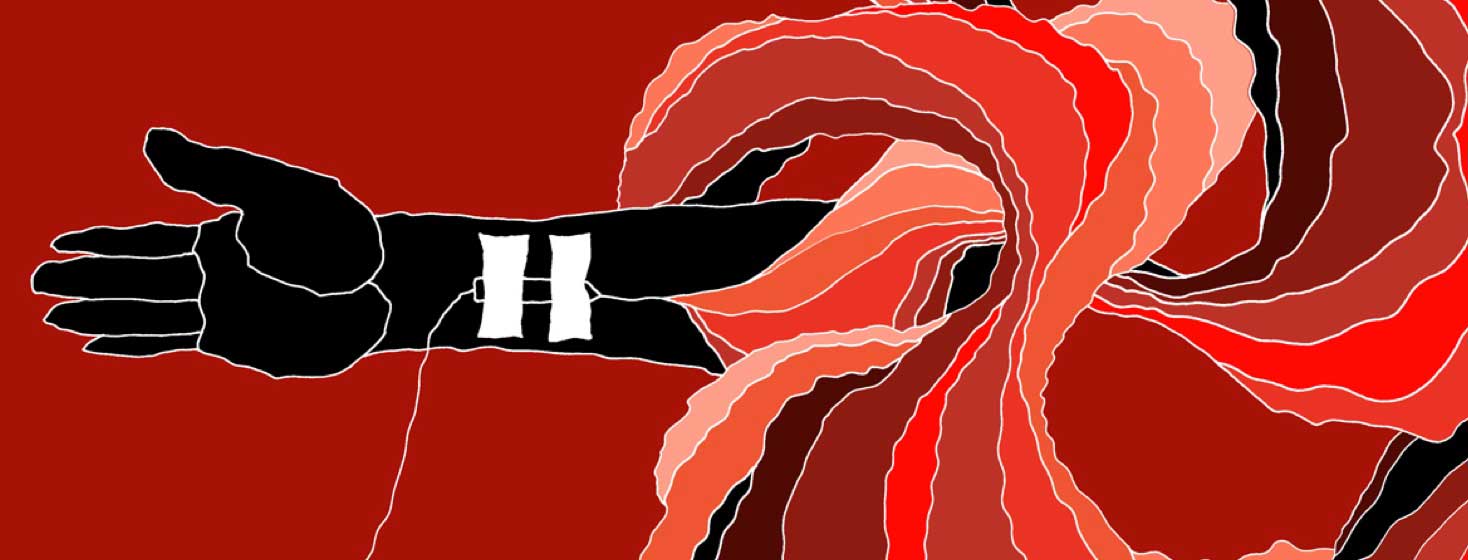Community Spotlight: Bleeding Disorders That Aren't Hemophilia
Reviewed by: HU Medical Review Board | Last updated: November 2022
Inherited hemophilia is not the only type of bleeding disorder. Other bleeding disorders can appear similar to hemophilia but involve different abnormalities. Diagnosing a bleeding disorder requires blood tests.
Blood clotting factors are proteins in the body that help clot the blood and prevent excessive bleeding. Clotting factor tests are used to see the amount of these proteins in the blood.1
If your doctor thinks you might have a bleeding disorder, learning about hemophilia and other disorders can help you make the best treatment decisions.
Von Willebrand disease
Von Willebrand disease (VWD) is the most common inherited bleeding disorder. More than 3 million people in the United States have VWD. VWD shares many similarities to hemophilia. Like hemophilia, Von Willebrand is a disorder that affects the way the body controls blood clotting and bleeding.2
While the most common types of hemophilia affect blood clotting factors VIII (8) or IX (9), VWD affects another clotting factor known as von Willebrand factor (VWF).2
Von Willebrand disease is classified by the type and severity of the defect. For example, VWD 1 is the most common and symptoms vary from mild to severe. Most of the time, Von Willebrand is hereditary. This means that it runs in families. However, rarely VWD can appear later in life.2
Symptoms of Von Willebrand are similar to hemophilia and include:3
- Frequent nosebleeds that bleed for a long time or are hard to stop
- Bruises that show up easily and appear raised and bigger than a quarter
- Heavy bleeding after dental work or surgery
- A family history of bleeding disorders
- Heavy periods or heavy bleeding after giving birth
Acquired hemophilia
Like inherited hemophilia, acquired hemophilia (AH) is a bleeding disorder. However, AH is a rare autoimmune disease that is not passed on through families. An autoimmune disease happens when the body’s immune system mistakes healthy tissue for harmful invaders. Because of this, the immune system begins to attack the healthy tissue.4
In acquired hemophilia, the body makes harmful antibodies known as inhibitors. Inhibitors attack the clotting factors that are needed for blood to clot normally.4
Most people with acquired hemophilia are older adults. Up to half of the cases of acquired hemophilia have no known causes (idiopathic). The remaining cases are linked to other autoimmune disorders, such as:4
- Lupus
- Rheumatoid arthritis (RA)
- Multiple sclerosis (MS)
- Sjögren’s syndrome
- Inflammatory bowel disease (IBD) or ulcerative colitis (UC)
Other conditions linked to acquired hemophilia include:4
- Infections
- Diabetes
- Hepatitis
- Lung or skin diseases
- Blood cancer
Sometimes, acquired hemophilia can occur after taking some drugs like penicillin or interferon. AH has also been linked to pregnancy, mostly in post-partum.4
Other rare bleeding disorders
There are other rare bleeding disorders. The number of people affected by these disorders varies. Symptoms of these disorders also vary depending on the part of the bleeding and clotting process impacted, severity, and past history of the person affected.5
Some of these rare disorders include:5
- Prothrombin (factor II) deficiency
- Alpha 2-antiplasmin deficiency
- Combined factor V and factor VIII deficiency
- Other factor deficiencies, such as V, VII, X, XI, and XIII
- Plasminogen deficiency
- Congenital deficiency of vitamin K-dependent clotting factors
- Plasminogen activator inhibitor-1 (PAI-1) deficiency
- Rare congenital fibrinogen deficiencies
- Bleeding disorders due to platelet defects
Treatment
If you have a bleeding disorder, following your treatment plan is necessary. Some people will have special needs, like children and pregnant people.6
Treatment depends on the type of disease, your age, and health history. In general, treatment includes:6
- Expert care at hemophilia treatment centers (HTCs)
- Medicines
- Factor replacement
- Adopting healthy lifestyle habits
- Preventing complications

Join the conversation